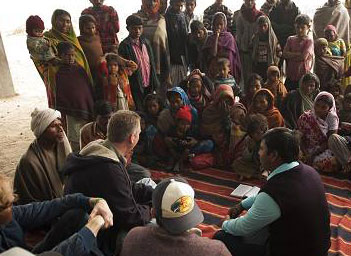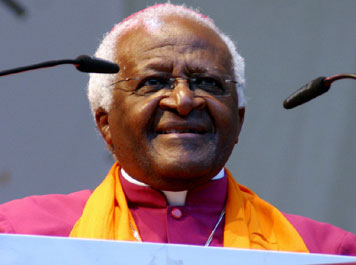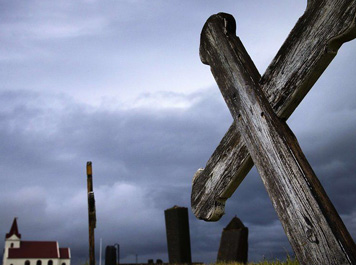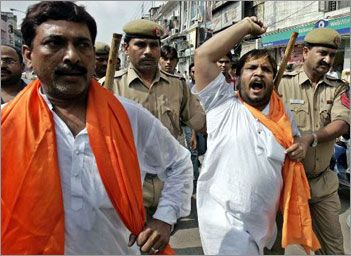ON a bright December morning in India, while most Americans were tuned to the Christmas season, Jagdish Kumar* set out on an 11th-hour mission to save his ministry.
The 34-year-old elementary school principal had devoted the past 12 years of his life to sharing the Gospel in Bihar, India’s poorest state. But in that time he had started only a single church and witnessed a mere handful of his countrymen follow Jesus.
Worse, he knew many of those who believed were perilously weak in their faith. The results were discouraging, especially compared to the explosive response to the Gospel experienced by Jesus’ disciples in the Book of Acts. What was the point if no one seemed to care about Christ? Jagdish deemed his ministry a failure and nearly convinced himself to abandon it.
But he couldn’t shake the nagging feeling that, before he quit, God was asking him to try one more time. He had recently been given a new tool from a friend and fellow church planter, Elvin Trueb*, a Southern Baptist missionary from Life Church in Leander, Texas. Trueb had spent the past six months training Jagdish in a church-planting method known as RAD (Rapidly Advancing Disciples).
It employs a strategy to bring the Gospel into unreached villages based on Luke 10, when Jesus sent out disciples two by two, searching for “men of peace.” RAD had never been used in Bihar, and Jagdish doubted it would make any difference. But since he was on the verge of quitting, he reasoned he had nothing to lose.
Jagdish chose a village about 20 miles from town and went to work that December morning in 2008, just a few days before Christmas, field testing some of the techniques he gleaned from training. Rajeev Kumar*, a church-planting partner who was in Jagdish’s RAD training group, accompanied him. As the day wore on, Jagdish’s doubts about RAD and his utter failure as a church planter seemed to be confirmed. Once again, no one was interested in hearing about Jesus.
A divine appointment
As he and Rajeev wandered into the last corner of the village, Jagdish believes God presented a divinely appointed opportunity. Two men were sitting together, talking. When Jagdish introduced himself as a disciple of Jesus Christ, he was surprised to find they genuinely wanted to know more. So Jagdish shared the Gospel — and one of the men immediately accepted Christ.
“He was saved!” Jagdish says with a grin, remembering the sweetness of the moment. It was a Christmas present tailor-made to encourage a weary church planter.
The man invited Jagdish and Rajeev into his home for dinner. Recognizing this was a “man of peace” that Jesus spoke of in Luke 10, they accepted. Over that meal the men formed a bond that quickly blossomed into the village’s first church.
“I said, ‘This [RAD] method looks good to me,'” Jagdish recalls. “We will apply this method in 2009. And after that we have applied this method wherever I go. It’s very good news.”
Using RAD principles, Jagdish started six churches in the first three months of 2009. Rajeev started five in a similar timeframe. More and more Bihari villagers came to Jesus as new churches were planted. There was discipleship, communion, evangelism and dozens of baptisms — all marks of healthy, growing churches. Jagdish and Rajeev wasted no time in teaching the church planting techniques they’d learned from Trueb to each of the 11 churches they started. Within two years, second- and third-generation churches were popping up across Bihar, all offspring of the original 11.
The effect was exponential. Over the next few years, God continued to multiply Jagdish and Rajeev’s work, starting with that single new believer they’d met that December morning. Armed with the RAD training and a passion for making Christ’s name known, Jagdish and Rajeev watched the Book of Acts come alive in Bihar. Together, they have been the catalyst that God used to start more than 300 new house churches across the state since 2008, representing more than 3,000 new believers — the foundation of what’s known as a church-planting movement (CPM).
“It was amazing for me, but I have not done this,” Jagdish says with humility. “This is not our method. I have only applied the method [in Luke 10]. This is the work of God.”
How has this multiplication happened so quickly? Trueb gives credit to RAD’s biblically based methodology but also points to two other factors: the power of the Holy Spirit and a simple model of house church — no paid staff and no building required. He believes this model is essential to church growth in rural Bihar, where spiritual and economic poverty are compounded. According to India’s government, Bihar has the lowest gross domestic product per capita in the country.
A Sunday visit
Dusk is falling as Trueb, Jagdish and Rajeev pay a visit to a third-generation church started by a 28-year-old construction worker and church planter named Dileep Das* in Lalitpur* village. Das was led to Christ by another Bihari church planter named Abishek Das,* who was led to Christ and trained by Rajeev. Worship “services” at Jhunathi church would be almost unrecognizable to many American evangelicals.
Every Sunday, 15 to 20 adults and about 15 children pack into Dileep’s 10×8 mud-and-brick hut, topped by a bamboo-and-thatch roof. They sit on woven mats on the ground because there are no pews or chairs. There’s no electricity either, which means there is no air conditioning when summertime temperatures top 115 degrees F. Light comes in the form of a single oil lamp fashioned from a discarded hydrogen peroxide bottle. There is no running water or bathroom — members must remember to “go” before church. With no sound system, projection screen or praise team, the only worship instruments are a lone tambourine and the believers’ hands and voices. Yet despite the lack of trappings, this tiny group of believers praise Jesus — and the Gospel flourishes as a result.
Before he met Abishek, Dileep had never heard of Christ. Neither had any of the people in the seven churches Dileep has started in seven different villages surrounding Lalitpur. It’s a remarkable feat for a young church not yet two years old. Every Sunday Dileep visits two of the churches to continue teaching their members; he meets with all seven of the churches’ pastors once a month to train them in RAD. And he leads by example. Dileep has helped more than 35 people come to know Christ in the two years he’s been a believer.
Trueb says it’s the kind of growth that’s needed to win Bihar for Christ. That’s because in India — the world’s second-most populous country — sharing the Gospel can be a bit of a numbers game.
Roughly the size of the state of Indiana, Bihar is home to 103 million people — about one-third of the entire population of the United States. Fewer than .05 percent are evangelical Christians; 80 percent of Bihar is Hindu, 15 percent Muslim and 5 percent Buddhist.
In the area Trueb serves, which includes Bihar and eastern Uttar Pradesh, part of West Bengal and the plains of Nepal, approximately 4,000 people die each day. In contrast, the daily birthrate is nearly 12,000, resulting in a net growth rate of 8,000 — per day. Trueb says that means if Christians there aren’t “sharing the Gospel 8,000 times a day, we lose the battle of lostness. … At first, that seems like it might be really discouraging, but it’s not, because in Acts we know God overcomes those types of things.”
Spiritually, Trueb says Bihar has long been an “enemy” stronghold. It is the supposed birthplace of both Buddhism and Jainism and is bisected by the Ganges River, sacred to Hindus. Surprisingly, Trueb says persecution against Christians has practically been nonexistent since 2006, another boon to unimpeded church growth. But he doesn’t know how long that will last, and despite impressive progress, Jagdish and Rajeev have a lot more work to do.
Their goal? A house church in each of Bihar’s 45,000 villages.
“This is a very good time for harvesting, but laborers are few,” Jagdish says. “If our people will work and will pray, very soon … every village and every district will have a church.”
“This is the right time and we have the right tools,” Rajeev adds. “And we are harvesting fast.” BP






















